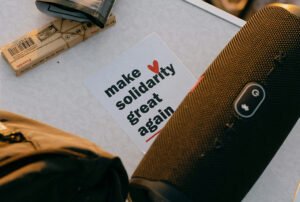January 17, 2012; Source: ABC News | Today, Congress is scheduled to vote on the Protect Intellectual Property Act (PIPA) and the Stop Online Piracy Act (SOPA), two bills that aim to prohibit the illegal sharing and copying of content such as movies and music on the Internet. Many technology companies have spoken out about the negative impact the proposed bills could have on the online world, but big names like Wikipedia and reddit are now taking their protests even further by going dark today.
PIPA and SOPA are intended to control online piracy, and specifically piracy facilitated by sites hosted outside of the United States. Both bills require Internet service providers to block users from accessing particular websites by using DNS blocking, a technique that some say could damage or significantly alter the underlying infrastructure of the web. Huge Internet entities such as Wikipedia, Twitter, Google, Facebook, and Tumblr have spoken out on these bills, saying they will force websites to act as online police and to be held responsible if any users link to pirated content.
Sign up for our free newsletters
Subscribe to NPQ's newsletters to have our top stories delivered directly to your inbox.
By signing up, you agree to our privacy policy and terms of use, and to receive messages from NPQ and our partners.
The nonprofit organization Fight for the Future is encouraging sites across the web to “go dark” for 12 hours today as a strike on censorship. The list of websites that have joined the strike includes WordPress, reddit, Wikipedia (which will be dark for 24 hours), MoveOn.org, TwitPic, Greenpeace International, Boing Boing, and many more. The only websites available on Wikipedia today is an article on SOPA and the SOPA Initiative, which is worth a look. In addition, Google now features a link on its home page stating the company’s opposition to the legislation. “Like many businesses, entrepreneurs and web users,” a Google spokesperson said, “we oppose these bills because there are smart, targeted ways to shut down foreign rogue websites without asking American companies to censor the Internet.”
The online community has been adamant in its activism against SOPA and PIPA, which many see as an attempt by powerful governmental forces to censor the Internet. With so many heads of major Internet companies speaking out against these bills, it will be interesting to see the results. Although both bills are seriously lacking in support from web-centered corporations, PIPA and SOPA still have abundant backing in Congress thanks to numerous lobbies, many of which are primarily concerned with copyright infringement and protection.—Aine Creedon













